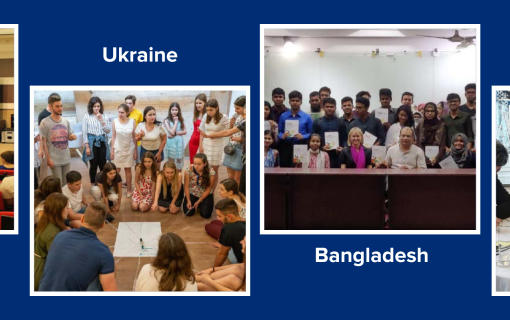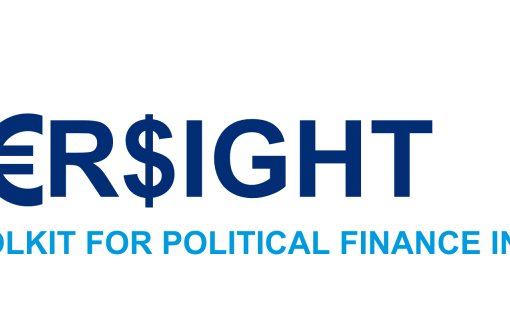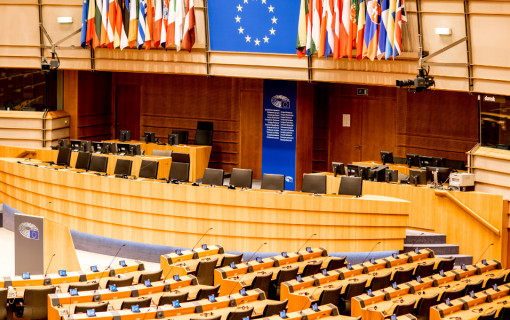IFES Pre-election Technical Assessment Project, Romania, September 8-28, 1995
EXECUTIVE SUMMARY
Since the revolution of 1989, Romania has conducted several important elections in an attempt to move her people from its sordid past toward a process which allows for self determination. In the elections of 1990 and 1992, the people placed into positions of authority public officials who are determining the future course of this proud nation. In 1991, they adopted a new constitution.
The International Foundation for Electoral Systems (IFES) first became involved in the electoral process in Romania in May, 1990, when it sent a team to observe the first multi-party elections held in over forty years. Despite an atmosphere of intimidation and violence, it was generally accepted by the international community that the conduct of those elections was the first stage in Romania's transition to democracy. However, the elections were considered administratively chaotic as there were no guidelines for voters, no written instructions or training of poll workers.
The February 1992 local elections showed little administrative improvement. The administration of the elections was left to the local commissions, some using their initiative others not, leading to inconsistencies. Again, there was no training or guidance notes to electors or officials.
In March, 1992, IFES sent a two-person team to undertake a comprehensive assessment of the election process in Romania and the ability and willingness of the Government to conduct parliamentary elections, which would be deemed to be free, fair and open by established international standards. Two experienced election consultants, Marta Maria Villaveces of Colombia and Charles Lasham from the United Kingdom, produced a report, "IFES Technical Election Assessment Project - Romania March 1-9 1992". This report made certain recommendations for the improvement of the administration of elections in Romania.
Ms. Villaveces remained in Romania until the September 27, 1992 Parliamentary and Presidential elections and, in the intervening period, worked closely with the Central Electoral Commission on matters relating to the administration of the elections and with NGOs and Government Ministries on civic education issues. She worked on the production of a poll worker guide and a voter education guide which were used in the September election. Ms. Villaveces also undertook training sessions for election officials in various parts of the country, which then cascaded to the members of the local election commissions.
It was noted that while technical problems still remained at the September 1992 elections, observers found that there was an "increased transparency in the organisation and administration of election day procedures". The IFES report" IFES Technical Assistance Project - Romania March 10 - September 1992", made numerous recommendations - most of which were contained in the Lasham/Villaveces report referred to earlier.
During this current 1995 assessment, the DeGregorio/Lasham team met with a wide-range of people and organizations in five major cities to determine if progress had been made to improve the electoral process and if adequate preparations had begun for the upcoming 1996 elections.
Our assessment includes the following recommendations:
• The need to follow-up to Chamber President Nastase's request to assist the parliament in the review of the draft electoral law;
• The requirement for a significant voter education effort through the mass media and other means such as NGOs and other organizations;
• Election commission (at all levels) and party observer training, including the development of a uniform training manual;
• Voter card/registration assistance in the form of commodities, such as computers and data base management software, and uniform written procedures;
• Improved ballot design and instructions; Structural improvements to the electoral system, such as the need for a permanent Central Election Commission;
• A shortening of poll hours and other changes.
It is disappointing to note that the recommendations in earlier IFES reports have not been embraced by the Government of Romania. One prime example is the IFES proposal to establish a Permanent Central Electoral Commission within Romania. We wonder how long the Government can continue to ignore this perfectly sensible and highly desirable change for the good. The need for a comprehensive voter education effort throughout the electoral process is abundantly clear. These and other important issues are addressed in more detail throughout this report. A complete set of recommendations are contained on pages 23-25 of this report.
On a positive note it should be said that several NGOs--such as Pro-Democracy--have been working diligently to encourage greater participation in the political process. Such programs are reaching average citizens and fostering the development of the electoral process by facilitating the debate and exchange of ideas, which is a crucial element of a participatory democracy.
One disturbing finding of our assessment was the increase in ethnic unrest and simultaneous growth of the nationalist movement in the country, which is causing uneasiness to many people involved in the political process. With similar activity manifesting itself in other countries of the region, it is not a problem to be taken lightly. An enlightened and politically aware citizenry can be an important mechanism to help prevent such problems from developing into major civil discord.
We hope that recent activity by the Romanian government to institute greater control over free speech and the press is not a sign of things to come. In spite of the fact that there have been four nationwide elections in the country since the 1989 revolution, there is still much progress to be made in order to improve the electoral process and for Romania to be recognized by the world community as a country that is serious about democracy.
Finally, with local elections, following a brand new election law, scheduled for early next year, it is vital that these recommendations be taken seriously and implemented expeditiously if such elections are to have a chance of being deemed free and fair.
Read the Full Report.









